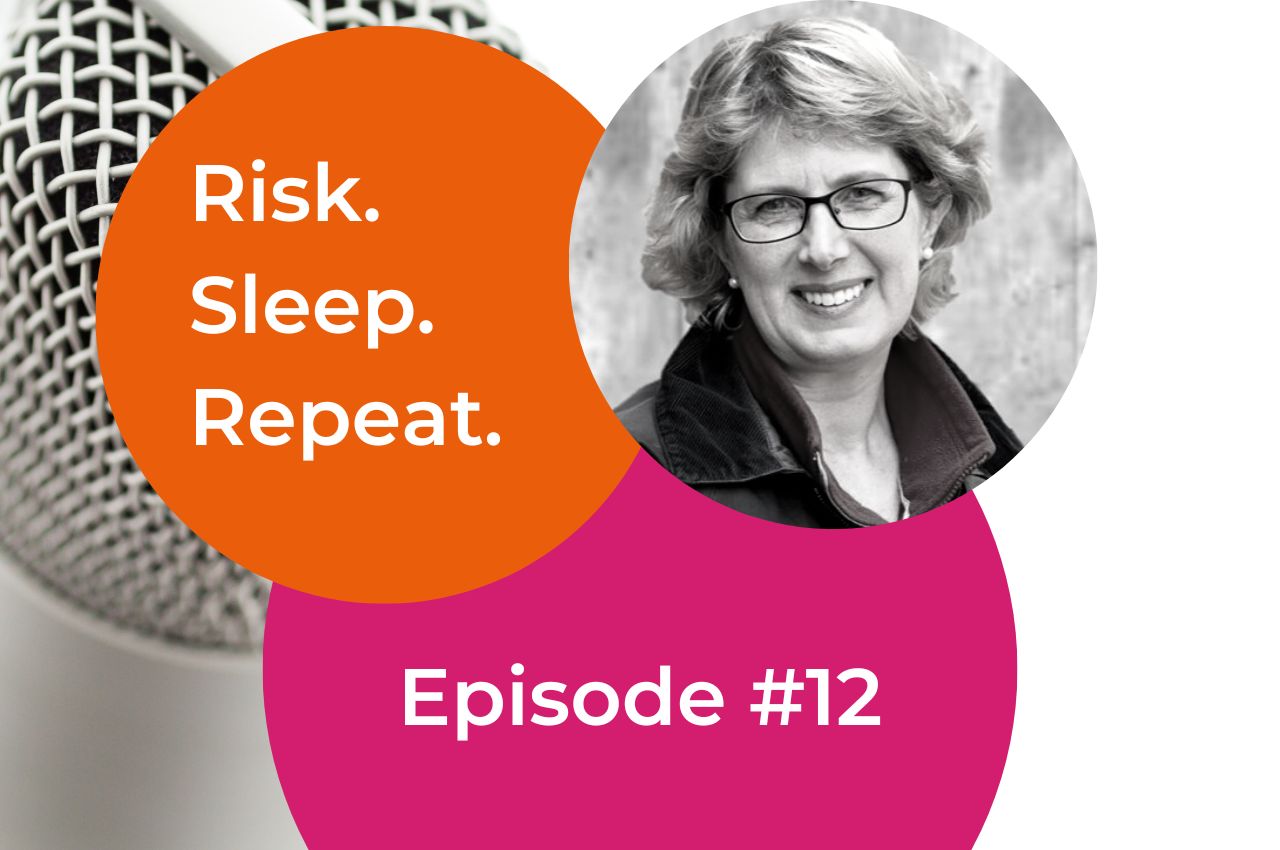
In this episode, we are joined by Andrea White, an independent fire engineer, fire risk assessor and chartered safety professional with her own consultancy, A W Fire Ltd. The strapline for A W Fire is Dedicated to Competence and it’s a mantra Andrea has sought to follow throughout her career, gaining several professional registrations and becoming a Fellow of the IFE.
In 2022, Andrea was voted an influencer within the fire safety industry by IFSEC Global. She is Founder and Director of Women Talking Fire, an independent women’s support and networking group for the UK fire safety industry.
This episode focuses on the subject of competence – the importance of competency in an organisation, what competency means in real-life, balancing confidence and competency and how to deal with competency issues.
Here is a snippet of the conversation between Andrea and Mike:
Q1. How do you ensure your business has people who are competent in their fire safety responsibilities?
In my career, I’ve always been that individual who seeks out and agrees to do the courses. So, in the Forestry Commission, I found out that there was a scheme that allowed you to take any relevant course and the Forestry Commission will pay for you to do that.
So, I went off and did an HND in business and finance because that was relevant. My job in the fire service, they were offering an HND at the local college in Fire Safety Engineering. And I said, Yes, I would like to do that.
I suppose from my perspective, it’s maybe about a mindset of continual and never-ending improvement. That sounds quite a grand phrase, doesn’t it? It’s about constantly being vigilant about your competence, being actively involved and paying heed to what you perhaps do and don’t know.
If you’re managing technical disciplines and you don’t have that technical discipline yourself, it’s very hard to be able to make a judgement on where the gaps are. Competencies, skills, knowledge, experience – it’s what does that look like in real life? I think that’s perhaps the tricky bit, is what does competence actually mean on a day-to-day level?
Mike Stevens
In a broader sense, in an organisation, that level of competency needs some time to be spent on agreeing and deciding what that might look like. Senior level, for example, on a board of directors, do you need to have a Director of Safety? Or do you have somebody that ensures that the board understands what their responsibilities are and how to execute those?
I think my preference is for the latter, because what I see often is that one individual has kind of almost drawn the short straw. They have that responsibility, and therefore, everybody else thinks, well, it’s not my department.
I’m not sure that’s quite correct in our legislation and our legal responsibilities. I don’t know that morally is terribly helpful, either or, culturally. If we start putting safety solely on to the responsibility of one individual, even if it’s a safety officer or a board member who’s responsible for safety, by implication, it then means well, nobody else is responsible for safety.
I think what we’re trying to do is increase awareness and make sure that everybody is aware that they do have safety responsibilities.
Q2. What part do you think Grenfell has played on ensuring competency in fire safety?
I think one really important point about competency is an end part of the sentence of the definition of competence that I learned when I did my NEBOSH training. We talked about skills, knowledge and experience, and someone who knows their limitations.
I’ve looked more recently for a definition of competence, but that second part of the sentence, that second part of the definition, isn’t there anymore. Anyone knowing their limitations seems to for some reason have disappeared.
That worries me because I think that’s a really important part of the definition. If we don’t know what our limitations are, then how can we make sure that we are doing work competently and remaining within our competence?
Clearly, the Grenfell inquiry has very much highlighted the issue of competence. I’ve been in the industry for almost 25 years, and I’ve kind of watched some changes to how we perhaps measure competence, and how we train people and give them that competence. I’m not convinced that those changes have been for the better if I’m honest.
There’s been a move towards maybe attendance certificates, rather than, you know, certificates that are only given when you have provided demonstrable evidence of your competence through assessment or exam.
I think that we’ve perhaps reduced the training in terms of duration, or the extent of the knowledge that we’re giving people. I think, you know we’ve probably lost some of that technical knowledge in terms of those who are, who were teaching. I think when you add those sorts of reductions in the quality of training, and yet you have buildings, certainly in in my career, that have become more ‘whizzy’, more complicated.
We’re using different materials, were providing more complicated solutions, particularly in terms of things like fire safety. You’ve kind of widened the gap; you’ve got more complex buildings, and you’ve got perhaps, a lower level of competence. I think that is a gap that we need to bridge right now.
Q3. What does competency mean to you?
What I find interesting is when people contact me about work, they’ve clearly decided that I am competent. I’m always quite curious how they’ve made that decision. Even if you’ve got a large organisation, and that organisation has agreed to undertake some work, you know, it’s how you decide that a particular individual is competent to do that particular piece of work that interests me.
I’m not sure that we’ve quite got enough of a handle on whether people’s post nominals actually demonstrate that competence, whether their certificates actually demonstrate that competence.
I’ve got nothing against experience demonstrating competence. However, just because someone has done a certain type of work for the last 10, 20, 30 years, doesn’t mean they were doing it correctly.
When someone says to me are, but I’ve done this for a very long time, I can’t dispute that. There is a difference between doing it for a long time and doing it correctly – there are two different aspects.
I think it’s about asking the right questions. I think somewhere in there is probably third-party accreditation, in terms of a peer, or a group of peers have considered what you’ve put in front of them and determined that you are competent.
Again, if you’re using that as a benchmark, do you know the limitations of that? Do you know, what they’ve demonstrated their competence in? I think it’s important not to have blind faith in pieces of paper, letters and experience, I think what I would like to see is sort of almost more interrogation of those to be able to identify that people are competent.
